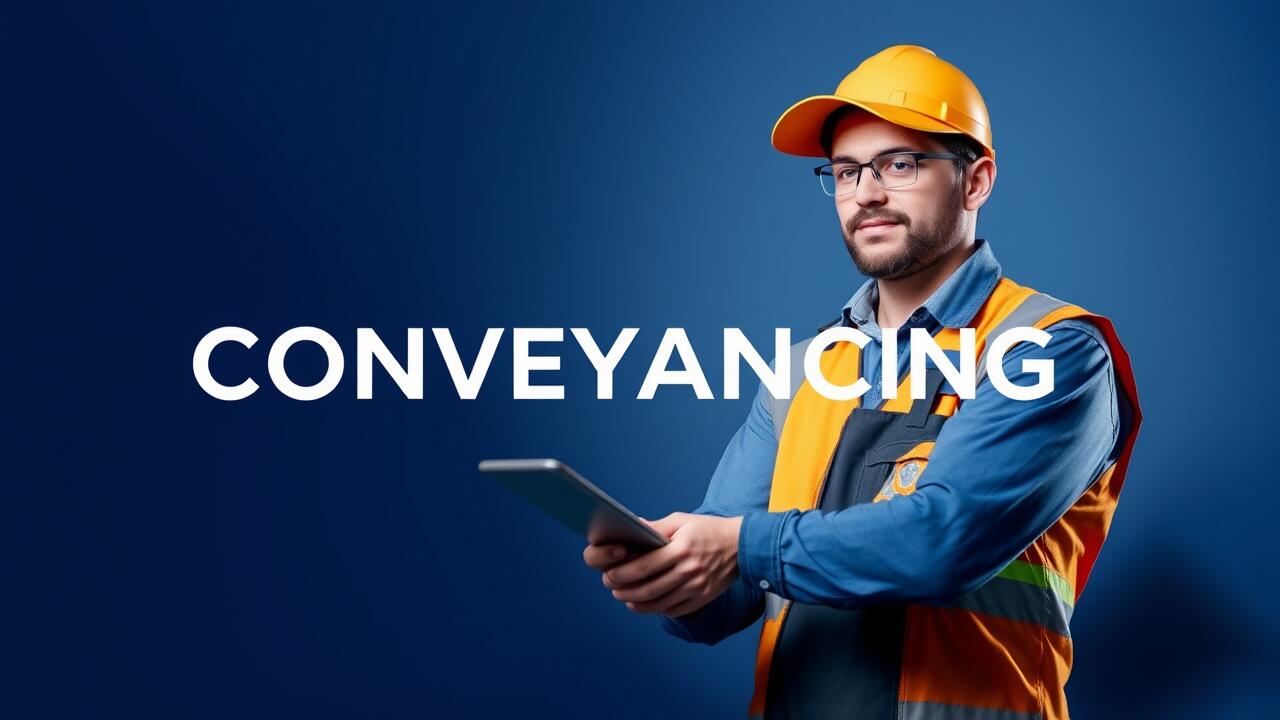
Choosing the Right Conveyancer
Selecting the right conveyancer is crucial for a smooth property transaction. A knowledgeable conveyancer can interpret complex legal documents and navigate the regulatory landscape effectively. Their expertise not only fosters efficient communication between parties but also helps to anticpate potential issues that could arise during the conveyancing process. It’s important to consider their experience level and reputation within the industry, as these factors often correlate with the quality of service provided.
When looking for a conveyancer, it is also beneficial to assess their accessibility and willingness to answer questions. A responsive conveyancer can make a significant difference in the pace of the conveyancing journey. Ensuring that they understand your specific needs and expectations will ultimately contribute to a more productive relationship. Engaging a conveyancer who is well-versed in the local market can also expedite the process, as they are likely to have established connections and insights that can prove advantageous during negotiations or other interactions.
How Expertise Influences Efficiency
The expertise of a conveyancer significantly impacts the efficiency of the conveyancing process. Experienced conveyancers possess an in-depth understanding of the legal requirements and local property laws. Their familiarity with common issues often allows them to anticipate problems and address them before they escalate. This proactive approach minimises delays and helps ensure that transactions progress smoothly.
Furthermore, skilled conveyancers maintain strong relationships with real estate agents, surveyors, and local councils. These connections can expedite communication and access to critical information. When conveyancers are well-versed in their networks, they can navigate the necessary procedures more swiftly. Ultimately, their knowledge and relationships contribute to a quicker and more reliable conveyancing experience for all parties involved.
Common Delays in Conveyancing
Delays in conveyancing often stem from various factors that can disrupt the smooth progression of property transactions. One of the primary causes includes slow responses from parties involved, such as sellers or buyers. When documentation is incomplete or unclear, the process can stall, leading to frustration and uncertainty. Furthermore, issues relating to title searches may arise, which can also lengthen the timeframe as conveyancers seek to resolve any discrepancies.
Another contributing factor to delays in conveyancing can be the complexities of the local regulations and legal requirements. Each state in Australia has its own set of rules, which can complicate the process depending on the property location. Issues such as land zoning, environmental concerns, or additional permits can introduce unexpected hurdles. All these factors combined can turn a straightforward conveyancing process into a lengthy ordeal, requiring patience and careful navigation by all parties involved.
Identifying Potential Bottlenecks
Bottlenecks in the conveyancing process can significantly affect the timelines involved in property transactions. Common culprits include delays in obtaining essential documentation such as land certificates or property titles. If parties involved fail to respond promptly to requests for information, this can stall progress and create frustration for everyone. Additionally, any discrepancies discovered in the documentation can lead to further scrutiny and prolonged negotiations, ultimately hindering the overall efficiency of conveyancing.
Another potential bottleneck arises during the communication stages between buyers, sellers, and their respective conveyancers. Misunderstandings or lack of clarity about specific terms can lead to delays in decision-making. Furthermore, external factors, such as local council approvals or financial institution processes, can also contribute to slowdowns. It is essential for all parties to maintain clear lines of communication and be proactive in addressing any issues that may arise to prevent unnecessary hold-ups in conveyancing.
Technology's Role in Speeding Up Conveyancing
Modern technology has transformed the conveyancing process, introducing tools that streamline tasks and improve efficiency. Software programs designed specifically for this field facilitate document management and communication between all parties involved. Electronic signatures eliminate the need for physical paperwork, accelerating approvals and reducing waiting times.
Additionally, online platforms allow for faster information sharing and updates. Conveyancers can access relevant property databases and communicate with clients instantaneously, leading to more informed decision-making. The integration of technology not only speeds up the process but also enhances accuracy, providing a more reliable experience for all stakeholders in a property transaction.
Digital Tools That Enhance Efficiency
Digital tools play a crucial role in enhancing efficiency throughout the conveyancing process. Online platforms allow for streamlined communication between buyers, sellers, and conveyancers. The ability to share documents electronically reduces the time spent on postal delays and in-person meetings. Access to property databases and online forms simplifies information gathering and ensures all relevant details are readily available at each stage of the transaction.
Additionally, software specifically designed for conveyancing can automate repetitive tasks and provide reminders for important deadlines. This reduces the likelihood of oversights and maintains momentum in transactions. Electronic signatures have also revolutionised how agreements are executed, further eliminating barriers to swift completion. Collectively, these tools contribute to a more efficient conveyancing experience for all parties involved.
FAQS
How long does the conveyancing process typically take?
The conveyancing process usually takes between 6 to 12 weeks, but this can vary depending on several factors such as property type, local council processes, and any complications that may arise.
What factors can cause delays in conveyancing?
Common factors that can cause delays include issues with property title searches, the need for additional documentation, buyer or seller communication problems, and waiting for approvals from banks or councils.
How can I choose the right conveyancer for my needs?
When choosing a conveyancer, consider their experience, qualifications, reviews from previous clients, and their communication style. It's also helpful to ask about their fees and what services are included.
What role does technology play in speeding up the conveyancing process?
Technology can significantly enhance the efficiency of the conveyancing process by automating tasks, improving communication, and enabling the use of digital tools such as electronic signatures and online document sharing.
Are there any specific digital tools that can help with conveyancing?
Yes, tools such as online property portals, digital signature platforms, and document management systems can streamline the conveyancing process, making it quicker and more efficient for both buyers and sellers.


